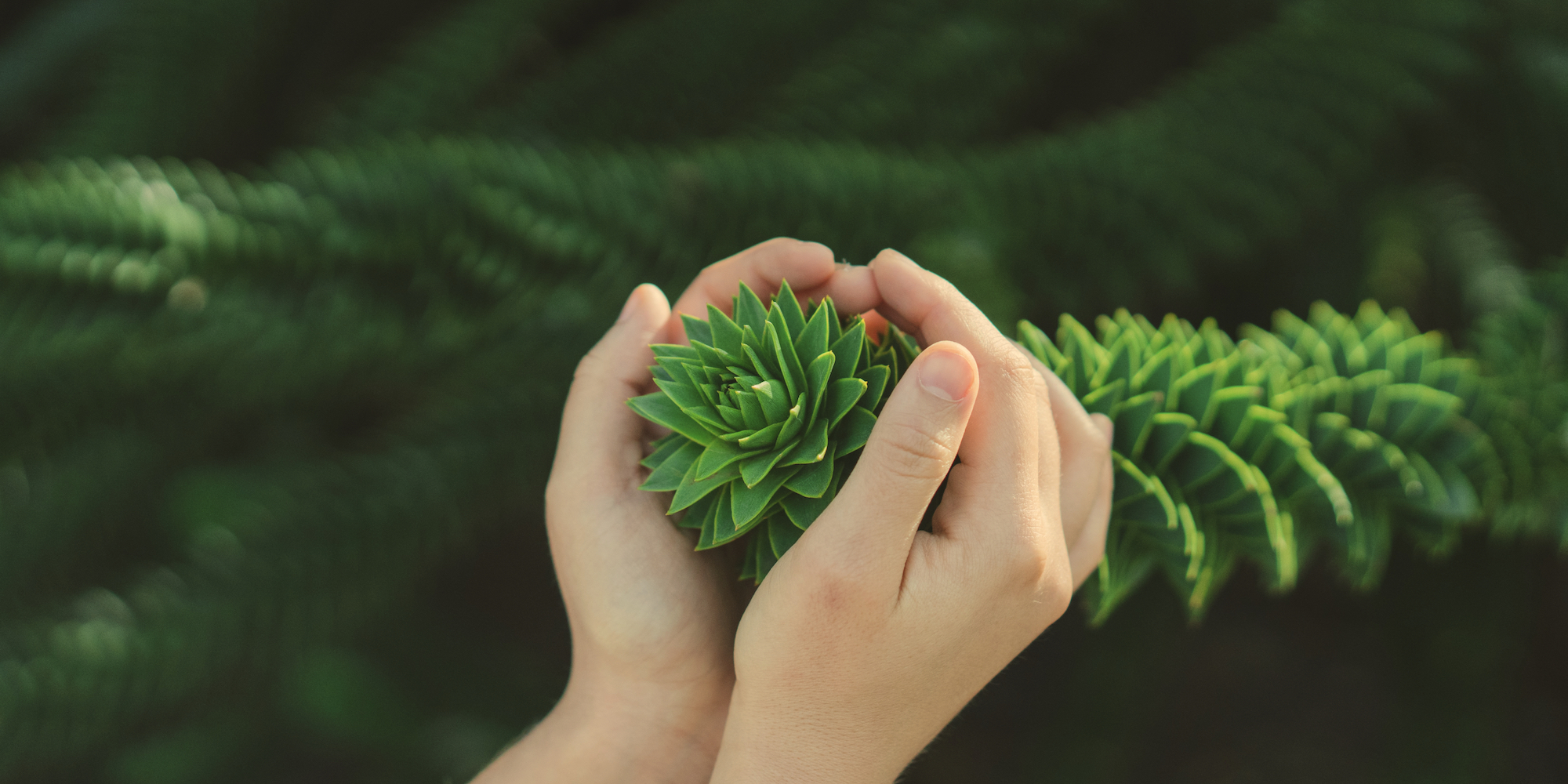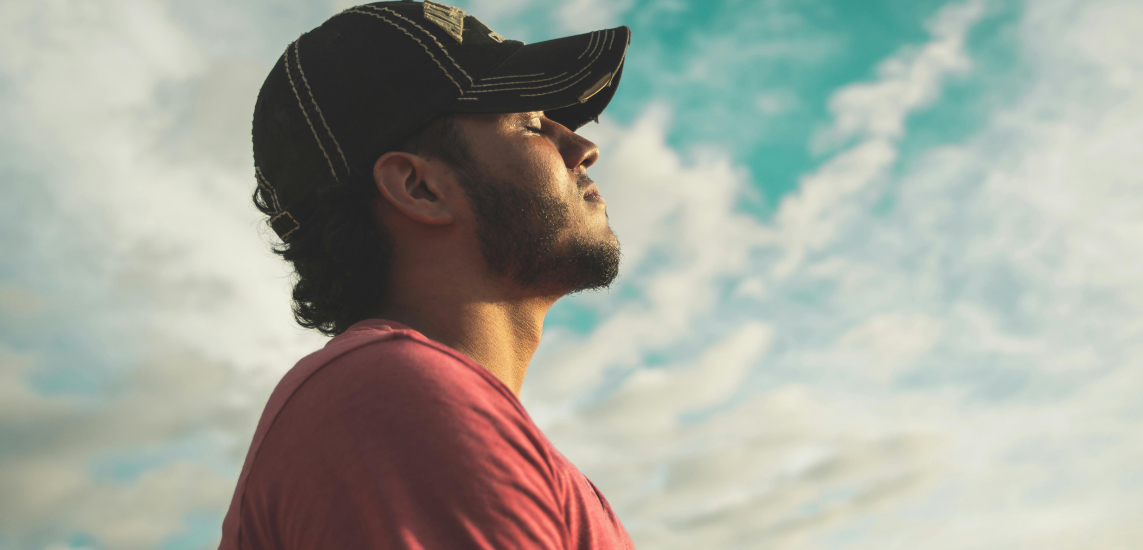This is a transcription of a talk Tara Brach has given on December 18th, 2019, in Bethesda, MD. This is the third and last part of her radical compassion series. In “Radical Compassion (Part 1)”, Tara shares her understanding of the trance of unworthiness, the importance of nurturing and how to practice RAIN to flourish self-compassion. In this second part, she explores how to use RAIN meditation for better relationships and awaken the heart to give compassion not just to one person, but all-inclusively. This last article explores the three blockages of the sense of belonging and their antidotes.
If you rather listen to the talk, just play the audio below:
- Radical Compassion Part 3: Loving Ourselves & Our World Into Healing Tara Brach 40:29
How To Awaken Our Sense Of Belonging
I want to start with a story that, to me, really captures the spirit of Radical Compassion inspired by Jarvis Masters.
For many years he has been a longtime prisoner and meditator. As the story goes he was in the exercise yard in San Quentin when one of the young inmates was about to throw a stone at a pigeon. The unspoken rule in the yard is to mind your own business. But Jarvis immediately raised his arm to stop him. Antagonized, the young man shouted at him, “What are you doing?” and everybody is expecting a fight. But Jarvis responded in a very spontaneous way, he said, “That bird has my wings. That bird has my wings.” The tension dissipated and interestingly for days after the incident different inmates would come up to him and say, “What did you mean by that, Jarvis?”
Intuitively we know what Jarvis meant. When we pay close attention to any living being—you know if you pay a lot of attention to a dog, it becomes a really precious creature. Or to a tree or to a child or to a plant. Whatever we pay attention to becomes part of us and you can sense the longing of life to live, the longing of others to love and be loved. We become connected, so that bird has my wings is a way of really relating out of a sense of belonging to all beings. And when we’re preoccupied with judging, when we’re throwing stones, we’re resentful. We’re stressed. We forget how we can harm each other.
The Parts Of Our Brain Blocking & Connecting Us
What I’d like to do is look a little bit at what blocks us from that realization of our belonging and ways we can wake it up.
I remember some years ago somebody shared the story about a bus of kindergarteners on a school trip. A little girl brings the driver a handful of peanuts. He is surprised and touched and thinks, “well, they must think I’m hungry,” and eats them. Ten minutes later, she comes up again with another handful and he thinks, “wow! How generous!” But the third time he says, “Honey you and your friends you can share and enjoy them,” and she goes, “Oh no, we just like sucking the chocolate off.”
It’s entirely natural that our motivations are mixed and some of our motivations come from the more primitive part of our brain that has got a self-focus. When that primitive part of our brain is charged up, it turns into greed—I need more… insatiable… or aggression… push away.
That’s one level, that we’re all rigged that way. We all have that primitive brain. And we all have a more evolved brain that perceives a sense of we. Out of that mutual belonging, there’s this natural sense of love and appreciation. There’s a sense of compassion and care when we see others suffering—a sense of generosity.
We’re endowed with this capacity to care and it feels good when we care. What’s interesting is that evolution rewards us for compassion because it feels good. It’s a real reward. It’s been the last 10 to 20,000 years that reward has kept us moving in the direction of being more collaborative and communicative and extending our caring beyond just kin. But for hundreds of millions of years before that—just think of the timing. For 10 to 20,000 versus hundreds of millions of years, we were in these little hunter-gatherer groups and others were the enemy. If they look different, act different, sounded different, smell different, we didn’t trust them. Our survival brain was activated. Others were unreal and they were less than us. So we’ve got these different energies going on inside us and our trajectory is to awaken and realize belonging.
Widening The Circles Of Compassion
In one of Einstein’s most famous quotes, he talks about an optical delusion of separation that’s a kind of prison for us and restricts our affections to just a few people nearest to us. He says, “Our task must be to free ourselves from this prison by widening our circles of compassion to embrace all living creatures and the whole of nature in its beauty.”
So we’re looking at how RAIN—the acronym RAIN represents Recognize, Allow, Investigate and Nurture—brings those qualities of mindfulness and compassion and can widen the circles of compassion.
I want to first just invite you to reflect in your own life what would it mean if you decided you want to widen your circles of compassion, make it something you’re doing on purpose. The given is we have the capacity to care, but what science is showing us is that when we actively train this capacity, when we actively develop it, it gets strengthened in a really meaningful way:
- Reflection # 1 Tara Brach 1:40
The question is what stops us? What stops us from really sensing beings in our daily life and those that we don’t know from being more real and from mattering to us?
The 3 Blockages
There are three main ways that we get blocked:
- One of those ways is just the habit of self-centered attention, that we just don’t pay attention. There are very few other people that are really dimensional real to us.
- The second way is that we have a habit of creating a bad other. We very quickly have a hierarchy and make others less than.
- The third is that we have a fear of overwhelm, so we pull away from the sense of suffering.
We’ll just take them one by one and I’ll explore kind of the antidote – what we can do to decondition it.
1. Not Paying Attention
So, the first one, this habit of not paying attention, really not wondering about what it’s like to be you to other people. Because unless there’s proximity and we wonder about that, there’s not going to be care.
There is an elderly man who wrote this essay. He said he was asked to talk about what he and his wife are doing now they’re retired. He said,
“Well, for example, to make today interesting, my wife and I went to town and visited a shop last week. When we came out, there was a cop writing out a parking ticket. We went up to him and I said, ‘Come on man, how about giving a senior citizen a break?’ He ignored us and continued writing, so I called him a jerk. He glared at me and started writing another ticket for having worn-out tires. So, my wife called him a creep. He finished the second ticket and he started writing more tickets. This went on for about 20 minutes. The more we abused him, the more tickets he wrote. Just then our bus arrived and we got on and went home. We try to have a little fun each day now that we’re retired.”
Our ways of entertaining ourselves or moving through the world don’t take others as being real. In Buddhism, they’re called neutral people. It’s not like we’re angry or down on them. It’s not like we’re attracted to them. They just don’t matter. If you decided to deepen your attention to the neutral people, you would find your heart becomes profoundly more sensitive because it’s a big zone of trance. We just shut down. It’s the person that’s behind the counter at the checkout counter at the supermarket. Or it might be some of the kids that are there when our child is having a play date. Or it might be the cousin of somebody that’s there to get a social gathering. We just zone out with neutral people very often. And it can happen in nature that we’re so in our virtual reality that the trees and the squirrels and the life around us are just a backdrop. It’s like a two-dimensional backdrop to “Moi.”
Like today, I went to Safeway to do some shopping and there’s a woman that’s always there at the express counter. She’s not completely neutral because I’ve kind of developed a back-and-forth, but what got her more in my heart was as I was waiting in line I would just look at her from a distance and say, “We are friends. We are friends.” And it was like it’s the truth we ARE friends in a deep way. There’s a benevolence. But it brought that truth into a living reality.
You might close your eyes for a moment to just practice for a second exploring this. This simple reflection is sometimes described as a form of “stealth metta”—that is lovingkindness. It’s kind of a secret way of reconnecting with others that opens our hearts.
- Reflection #2 Tara Brach 1:25
2. Othering
That’s the first block of breaking through this kind of a trance with neutral people that we’re not in the habit of paying attention to. The second one is more emotionally challenging. This is the block where we have the habit of sensing this person’s “bad.” They’re in some way less than us and as soon as there’s a hierarchy, our heart is not fully open. If you have any sense of being better than someone or worse than someone, your heart is not fully open.
A Taoist master was sitting naked in his mountain cabin meditating. A group of Confucianists entered the door of his hut having hiked up the mountain intending to lecture him on the rules of proper conduct. When they saw the sage sitting naked before them they were shocked and said, “What are you doing sitting in your hut without any pants on?” The sage replied, “This entire universe is my hut. This little hut is my pants. What are you fellows doing inside my pants?”
This “unreal othering” happens when we have difference in religious views. When we have difference in political views. When we’re of different race. When we’re of different class. When we’re of any difference, it’s very easy because of those millions of years of conditioning. When there’s any difference, it sets off a bit of a fear that says, “Oh! Other—not as good.” We do it very quickly and I really feel like a huge portion of the healing that’s absolutely essential in our world is this commitment to shining a light on the unseen biases that create this separation for all of us.
Any hierarchy, any “better or worse” is the grounds of social injustice, violence and war. This is the grounds of it. I think of the United States; our societal conditioning to assigning blame, to creating inferior, punishing badness has led to more incarceration than any other country in the world. Our prison population is five times higher than the average of most other countries in the world. Five times higher. The signal of the hierarchy, the blaming, the punishing and, of course, the toxic societal bias against people of color means that six times as many African-Americans as whites are in our jails. This is the suffering of hierarchy, of superior and inferior.
Of course, it plays out—difference in genders, sexual orientation and gender identity. Politics are really huge right now. It’s very hard to be thinking about what’s going on politically and not snap into a sense of bad other. I know you understand and yet it’s part of the trance that actually keeps our hearts from being awake. This is the great blindness. Most people don’t actually believe we’re all equal when I say we’re all equal and don’t believe that everyone has intrinsic value. Most people don’t believe that. We’re too conditioned by our culture, but science shows that, especially when there’s fear, we snap right into that hierarchy of worth.
I invite you to check that out when you’re feeling stressed, anxious, emotionally reactive, how quickly others seem inferior or superior and how when we live out of that, it causes harm.
I want to share a story with you that has most impacted me and I share once every couple years. It was told by a Unitarian minister. I grew up Unitarian and it was told on Christmas Eve. I was with my family at the church and this minister told the story.
A woman, her husband and two children had a long grueling trip going down the coast of California and they stopped at a restaurant that’s nearly empty. And her youngest son, Eric, one-year-old, was put in the highchair and suddenly she hears him squeal with glee. He’s saying, “Hi there!” These are two words he thought were one. “Hi there!”
His face is alive with excitement and then she writes:
I saw the source of his merriment. And my eyes cannot take it in all at once – a tattered rag of a coat, baggy pants, both they and the zipper at half-mast over a spindly body, gums as bare as Eric’s, hair uncombed, unwashed. And his hands were waving in the air, flapping about on loose wrists. “Hi, dear baby! Hi there, big boy. I see you, Buster!” My husband and I exchanged a look that was a cross between ‘what do we do’ and ‘the poor devil’. Eric continued to laugh and answer, “Hi there!” Every call was echoed. This old geezer was creating a nuisance with my beautiful baby. I shoved a cracker at Eric and he pulverized it on the tray. I whispered, “Why me?” under my breath.
Our meal came and the nuisance continued. Now the old bum was shouting from across the room. “So you know patty cake? Atta boy. You know peekaboo? Hey look, he knows peekaboo.”
We ate in silence except Derek was running through his repertoire for the admiring applause of the skid row bum. Finally, we had enough. Dennis went to pay the check imploring me, “Get there and meet me in the parking lot.” I trundled Eric out of the highchair and looked toward the exit. The old man sat poised and waiting directly between me and the door. Lord just let me out of here before he speaks to me or Eric! I headed toward the door. It soon became apparent that both the Lord and Eric had other plans. As I drew closer to the man I turned my back walking to sidestep him and any area might be breathing. As I did so, Eric, all the while with his eyes riveted to his best friend, leaned far over my arms reaching with both arms in the baby pick-me-up position. In a split second of balancing my baby and turning to counter his weight, I came eye-to-eye with the old man. Eric was lunging for him, arms spread wide the bum’s eyes both asked and implored, “Would you let me hold your baby?” There was no need for me to answer since Eric propelled himself from my arms to the man’s. Suddenly a very old man and a very young baby were involved in a love relationship. Eric laid his tiny head upon the man’s ragged shoulder. The man’s eyes closed and I saw tears hover beneath his lashes. His aged hands full of grime and pain and hard labor gently so gently cradled my baby’s bottom and stroked his back. I stood awestruck. The old men rocked and cradled Eric in his arms for a moment and then his eyes open and set squarely on mine. He said in a firm commanding voice, “You take care of this baby!” Somehow I managed, “I will,” from the throat that contained a stone. He pried Eric from his chest unwillingly, longingly, as though he was in pain. I held my arms open to receive my baby and again the gentleman addressed me. “God bless you, mam. You’ve given me my Christmas gift.”
I said nothing more than a muttered, “Thanks.” With Eric back in my arms, I ran for the car. Dennis wondered why I was crying and holding Eric so tightly and why I was saying “My God. My God. Forgive me.”
I remember sitting there in church after hearing this and just being so aware of how many people I had kind of in my mind put in a little box of something less than who they were. And how sad, how sad for them and for me and how sad for a culture that that’s just really thick in the atmosphere to not see the goodness that’s here. When we are living inside bias—superior-inferior—we can’t see who’s there. Our intelligence, wisdom and sight are narrowed. We can’t see the goodness. We can’t see our shared vulnerability. I often mention Mother Teresa saying, “If you’re suffering it’s because you have forgotten that you belong.” And it doesn’t matter whether we think we’re superior or inferior. Either way, it’s severed belonging. Right?
Again, the antidote is the intention to pause when we become aware that there is some way of putting down or inflation and instead of believing our thoughts we look to see the vulnerability. “What’s it like being you?” And we look to see the goodness.
For myself, I have a phrase that I sometimes say which is, “Not superior, not inferior.” I mean, who am I if I’m not superior or inferior? I find when I really let that settle into my body, it’s like a lot of space opens up and it’s a mysterious belonging to the universe. Not superior, not inferior.
You might take a moment and pause and we’ll just do a brief reflection here:
- Reflection #3 Tara Brach 2:55
3. Fear Of Pain And Overwhelm
The third block is pretty universal, which is that we are afraid of pain and afraid of being overwhelmed. If I pay attention to the magnitude of the suffering of the world it will be overwhelming, and yet the alchemy of compassion is unless we’re willing to feel, unless we’re willing to be touched by suffering, it will be an abstract kind of compassion—it won’t be real tenderness, a really awake heart. Radical compassion is when there’s a tenderness and an active caring.
The truth is that it takes practice to let suffering in and there are some tricks. It’s a matter of going slowly, but one of the best supports is if you imagine breathing in and breathing out. If you’re going to breathe in suffering and let yourself be touched, you have to be able to then breathe out and sense that you’re offering it into the universe to be held by the universe with care and with love. But if you are just always breathing in, this is where we get empathy and compassion fatigue. We just get creamed because our limbic system just gets agitated and it does feel like too much.
The heart becomes a transformer of sorrows if you know how to breathe in, but also breathe out and really offer out either through prayer or active helping. People who can actively engage their caring actually feel better because there’re not bottled up and paralyzed.
We all have the capacity to move through life and it becomes a real adventure with that sense of “that bird has my wings.” Where we run into others including animals, there can be this sense of the aliveness of connection, that open heartedness and it feels good and we have that wired into us as young children and it’s something that we can cultivate.
I started with a story about children and mixed motives. I thought I’d end by sharing some stories about children and the heartspace that’s there. This is in response to the question “What does love mean? These 4 to 8-year-olds write…
“Well when my grandmother got arthritis, she couldn’t bend over in pain or do her toenails anymore. So my grandfather does it for her all the time, even when his own hands got arthritis. That’s love.”
“When someone loves you, the way they say your name is different. You know that your name is safe in their mouth.”
“Love is when my mommy makes coffee for my daddy and she takes a sip before giving it to him to make sure it tastes okay.”
“Love is what’s in the room with you at Christmas if you stop opening presents and listen.”
“When you tell someone something bad about yourself and you’re scared they won’t love you anymore, but then you get surprised because not only do they love you, they love you even more!”
“Love is when your puppy licks your face even after you left them alone all day.”
“I know my older sister loves me because she gives me all her old clothes and has to go out and buy new ones.”
“You really shouldn’t say ‘I love you’ unless you mean it, but if you mean it, you should say it a lot. People forget.”
“When you love somebody your eyelashes go up and down and little stars come out of you.”
So radical compassion has all the flavors of love. It has the love that’s appreciation, the love that’s caring, the love that’s forgiving. It means, though, if our life is to have meaning that it comes into action. There’s a lot of people now that are saying this is that point in history when the activists, the social activists, need to learn how to sit down on a cushion and get connected with their heart and spirit. And the people that sit on the cushion all the time, they need to know how to bring what they’ve discovered on the cushion and get out there and do stuff to help, which is really a key piece.
So with that I want to end with a brief reflection if you will, closing your eyes:
- Reflection 4 Tara Brach 2:49







